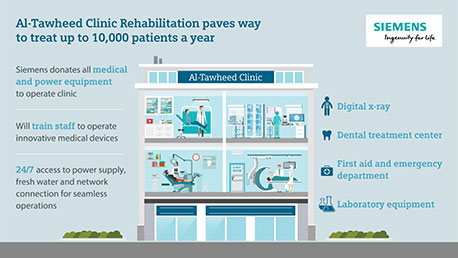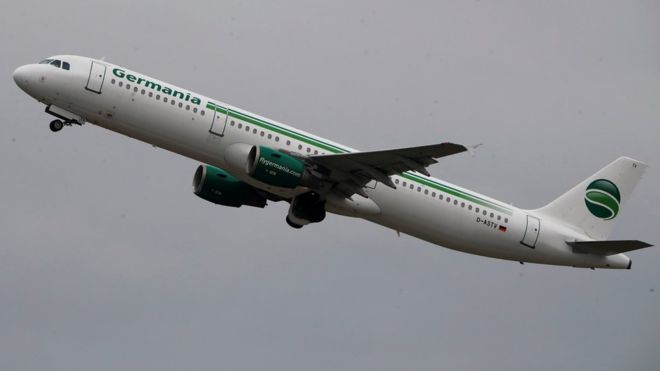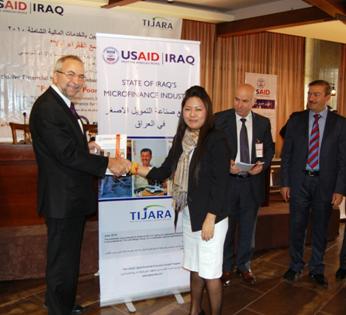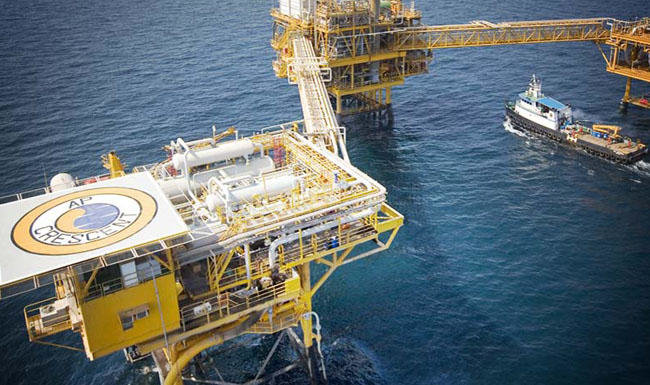UNICEF receives 26 million from Germany to support national systems and ensure vulnerable children in Iraq receive quality basic and social protection services in Iraq
The German Government, through its Development Bank, the Kreditanstalt für Wiederaufbau (KfW), has contributed 26 million Euros to UNICEF in order to help the agency in its ongoing efforts to assist the Government of Iraq in strengthening its systems and improve access to quality basic services and social protection for children and their families.
This latest amount brings the German Government’s total contributions to UNICEF Iraq to a total of 159 million Euros since 2015.
Vulnerable children and their families in Iraq are disproportionately affected by the lack of safe water, education, and social protection. The needs of the poorest have become even more acute as a result of the COVID-19 pandemic and its secondary impacts, such as disruption in schools and health services, and rights violations, as well as rising poverty, all diminish the chance of vulnerable children to realize their basic rights to survive, be protected, and continue learning.
In light of the scale of the pandemic’s effect particularly on children and their families, the German Government has reserved 6 million Euros exclusively for measures addressing COVID-19 related activities such as the Risk Communication and Community Engagement (RCCE) and the Infection Prevention and Control (IPC).
“This funding has come in at a critical time, when we should be doing all that we can to limit the effects of the pandemic on all children, especially the most vulnerable. Thanks to our German partner, we are able to scale up our efforts to support the Government of Iraq to strengthen national systems’ ability to respond and provide better quality and coordination of the basic services that it provides, public social protection for children and their families, and help to train educators, counsellors and other professionals working with children,” explained Hamida Lasseko, UNICEF’s Representative in Iraq.
For his part, the German Ambassador to Iraq, His Excellency Dr Ole Diehl (pictured), emphasized that the international community can only win the battle against the COVID-19 pandemic by working together.
“Germany continues to support Iraq in its fight against COVID-19. This is why we have launched an extensive global COVID emergency program, under which also a sizeable COVID-19 response window is allocated for Iraq and our contribution assigned to this program respectively. Good health and sanitary infrastructure are paramount to contain the virus. More importantly, every one of us needs to take part in the fight against Corona by wearing masks, keeping up social distancing and observing rules of basic hygiene.”
Since the pandemic broke, the number of children and adolescents who risk falling into poverty has doubled, from one out of five children and adolescents to over 2 out of every 5. Children and adolescents, who make-up more than half of the population in the country, are also the most at risk of experiencing poverty, service disruptions in critical basic services like primary health, water sanitation and hygiene, education and increase in rights violations.
“Investing in one’s children is the best investment any nation can make. The Iraqi government needs our support to further develop its technical capacities, strengthen its systems, and deliver for its children. We are especially appreciative of the support of our German partner at this critical time when we are working with the Government to enhance its ability and systems to deliver better education, health services, water, sanitation and protection for every boy and girl in Iraq,” added Ms. Lasseko.
There are 1.77 million people in need of humanitarian assistance and another 1.5 million who remain displaced and therefore exposed to higher risks of deprivation, violence and exploitation. The project which will be rolled out over 18 months, will target such populations.
The project focuses on long-term sustainability by strengthening national systems and capacities to provide integrated access to safe water, education and health services, protection, and social assistance, with the goal of enabling children to overcome poverty, practice their rights and fulfil their potential.
It will be implemented at the Federal level and in the Kurdistan Region of Iraq, in partnership with the Ministries of Labour and Social Affairs, the Education, the Directorates of Education at sub-national levels, and national and international Civil Society Organisations.
(Source: UN)
The post Germany supporting Vulnerable Children in Iraq first appeared on Iraq Business News.






